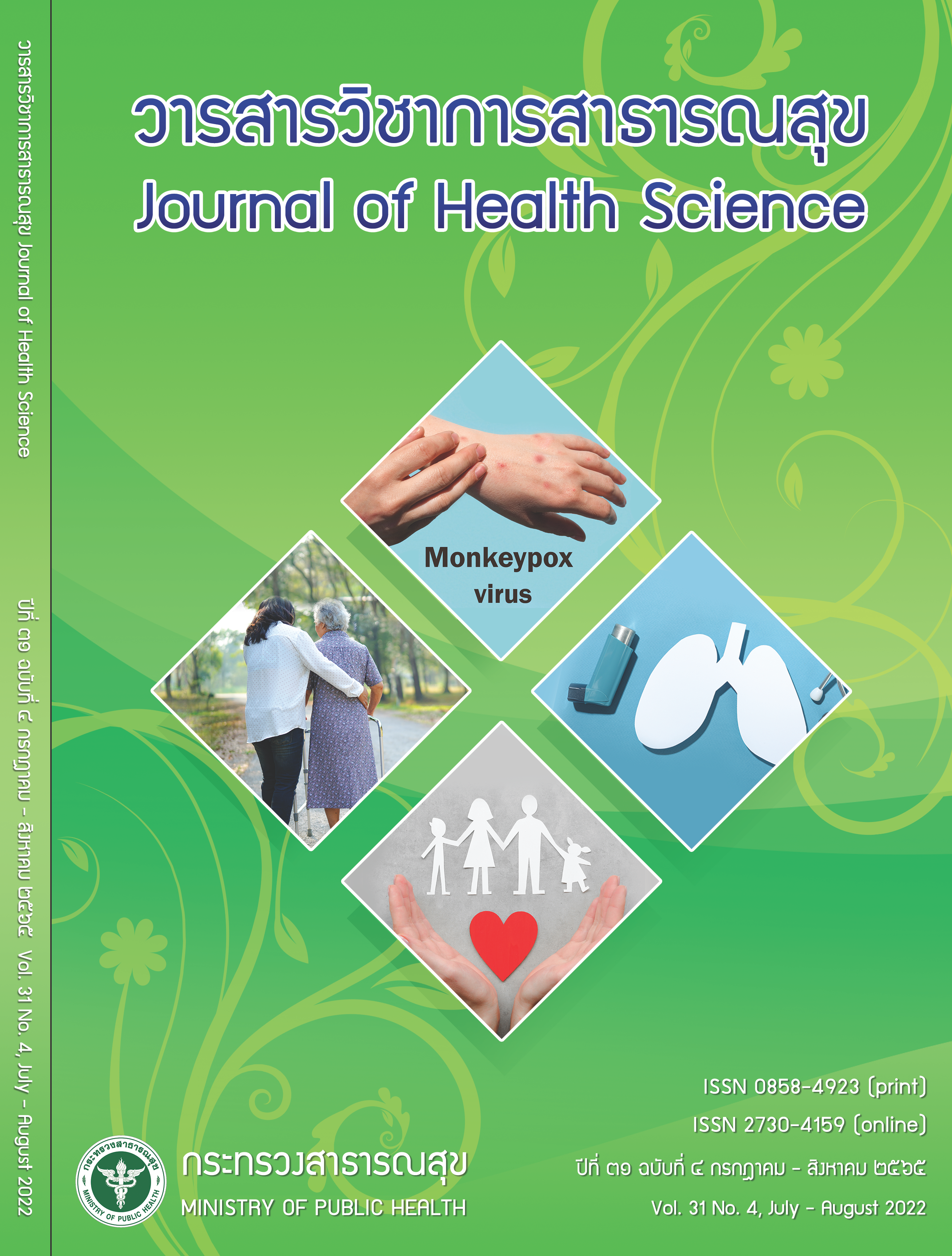Evaluation of the Development Project for Provincial Role Model on “Family Security Healthy Society”
Keywords:
family security, healthy society, health literacy, family relationships, community supportAbstract
This routine to research study aimed to evaluate the pilot project on “Family Security Healthy Society” in both socio-economic and health aspects before and after the implementation in the three targeted provinces, namely Buriram, Phayoa and Rayong. The project was jointly implemented by the Public Health Provincial Offices, Social Development and Human Security Offices, and Local Administrative Organization. The samples were 60 households purposively selected from both urban and non-urban areas. The data were collected through questionnaires and interviews and analyzed by using percentage, frequency, mean, standard deviation, and pair sample t-test. The findings of this study were as follow: (1) for the health aspect, there was significantly different in health literacy of the sample group between before and after the Project implementation (p<0.05); (2) for the social aspect, it was found that, after the Project implementation, the samples in Buriram and Phayao increased relationship with their families whereas the samples in Rayong had relationship value with their families at a lower level. Both Rayong and Phayao also received the increased support from their communities while Buriram received less support. Only Buriram had significantly different relationships with their families and community support (p<0.05). This study recommended the following: (1) policy on the family development needs to be target oriented; (2) the mechanism linking with a local committee should be set; (3) promote working with the family doctor team or primary healthcare unit; (4) build capacity of relevant volunteers such as village health volunteers, social development and human security volunteers; (5) promote the role of the local administrative organization in monitoring and expanding the project; (6) harmonize the database of the vulnerable families; and (7) improve the attitude and mindset of the implementers.
Downloads
Downloads
Published
How to Cite
Issue
Section
License

This work is licensed under a Creative Commons Attribution-NonCommercial-NoDerivatives 4.0 International License.







